These actors and movies have the most BAFTA wins and nominations ever
- Oops!Something went wrong.Please try again later.
- Oops!Something went wrong.Please try again later.
- Oops!Something went wrong.Please try again later.
- Oops!Something went wrong.Please try again later.
- Oops!Something went wrong.Please try again later.
- Oops!Something went wrong.Please try again later.
- Oops!Something went wrong.Please try again later.
See how many BAFTA wins and noms Judi Dench, Maggie Smith, Meryl Streep, Martin Scorsese, and more have received.
The British Academy of Film and Television Arts Awards, better known as the BAFTAs, were first held in 1949, and only had two categories in the ceremony's inaugural year: Best British Picture, which went to Odd Man Out, and Best Picture from any source — British or Foreign, which went to The Best Years of Our Lives.
The ceremony added an award for documentaries the next year, then added four acting categories — British Actor, British Actress, Foreign Actor, and Foreign Actress — in 1952. The BAFTAs then folded the British and Foreign categories together and added a Direction category in 1968, and subsequently added numerous new categories including Supporting Actor, Supporting Actress, Best Screenplay, and several craft categories in 1969.
This year marks the 77th anniversary of the BAFTAs, and Oppenheimer leads the pack with 13 nominations, just a few shy of the all-time record for a single movie. How many would it need to win to become the winningest movie in BAFTA history?
Here's our breakdown of all the actors, movies, and directors with the most BAFTA nominations and wins.
Most wins by an actress — Judi Dench
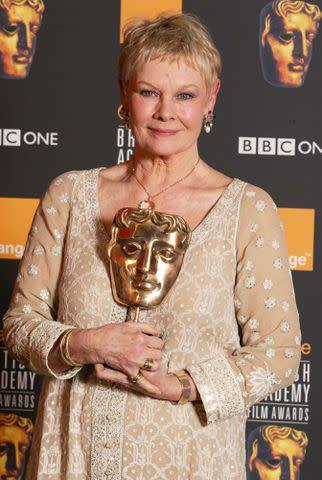
Dave Hogan/Mission/Getty Images
Dame Judi Dench at the 2002 BAFTAsDame Judi Dench is the winningest actor in BAFTA history with six career wins. Dench has two wins for Best Actress: one for Mrs. Brown and another for Iris. She won Best Supporting Actress three times: for A Room with a View, A Handful of Dust, and Shakespeare in Love. Bizarrely, two of those wins (Mrs. Brown and Shakespeare in Love) both came for playing Queen Elizabeth I (and both films were directed by John Madden).
Dench also won the 1966 BAFTA for Four in the Morning, which makes six competitive BAFTA wins. She also received the BAFTA Fellowship, an honorary non-competitive BAFTA, in 2001.
Maggie Smith
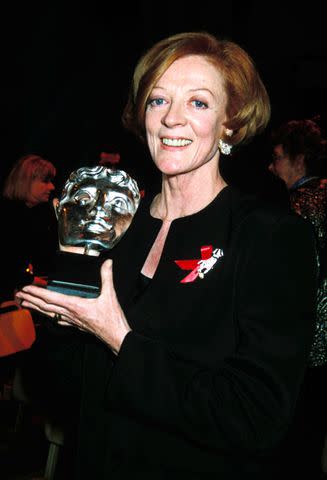
Dave Benett/Getty Images
Dame Maggie Smith at the 1993 BAFTAsDame Maggie Smith has the second-most acting wins of any actress. She shouldn't just be remembered as the Dowager Countess from Downton Abbey and Professor McGonagall from the Harry Potter series: she received a BAFTA for Best British Actress for The Prime of Miss Jean Brodie, then three Best Actress awards for A Private Function, A Room With a View, and The Lonely Passion of Judith Hearne. She also won Best Supporting Actress for Tea with Mussolini.
Cate Blanchett
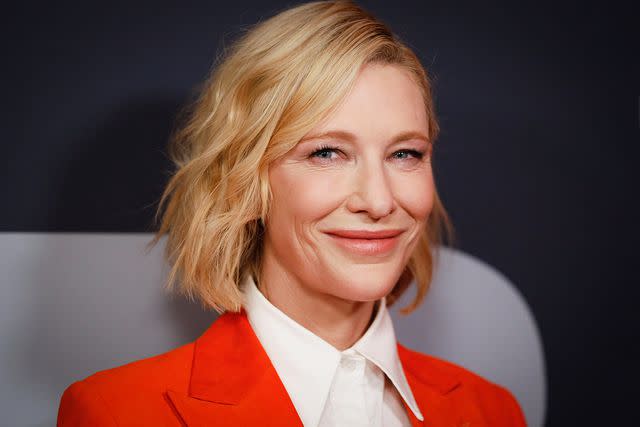
Hanna Lassen/Getty Images
Cate BlanchettCate Blanchett has the third-most BAFTA wins of any actress. She has four total BAFTA wins: Best Actress for Elizabeth, Blue Jasmine, and Tár, as well as Best Supporting Actress for The Aviator (for playing two-time BAFTA winner Katharine Hepburn).
Runners-up
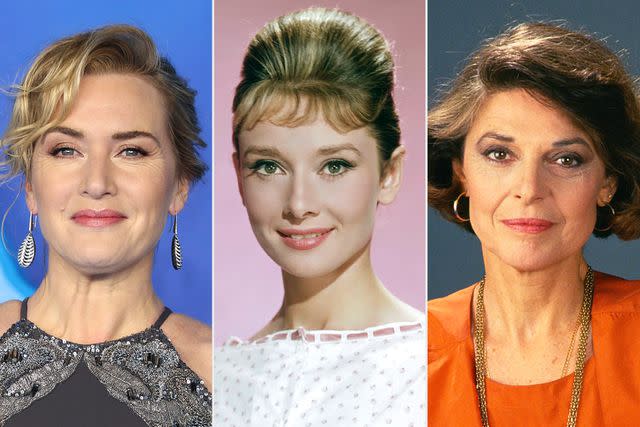
Mike Marsland/WireImage; Archive Photos/Getty Images; Paul Harris/Getty Images
Kate Winslet, Audrey Hepburn, Anne BancroftFour actresses have won three BAFTAs each: Audrey Hepburn, Rachel Roberts, Anne Bancroft, and Kate Winslet. Hepburn won three Best British Actress awards for Roman Holiday, A Nun's Story, and Charade. Roberts won Best British Actress for Saturday Night and Sunday Morning and This Sporting Life, as well as Best Supporting Actress for Yanks.
Bancroft won two Best Foreign Actress awards, for The Miracle Worker and The Pumpkin Eater, as well as Best Actress for 84 Charing Cross Road. Winslet won Best Actress for The Reader and Best Supporting Actress for Sense and Sensibility and Steve Jobs.
Most wins by an actor — Peter Finch
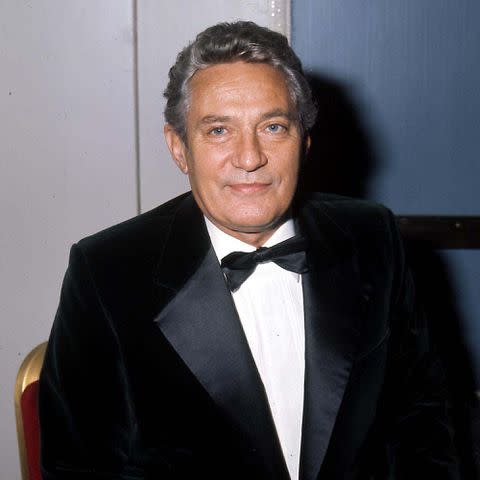
Avalon/Getty Images
Peter FinchPeter Finch, the versatile actor best known today for his performance in Network, holds the record for most BAFTA wins by a male actor. With five total wins, he's tied with Maggie Smith for the second-winningest performer overall, behind only Judi Dench. Finch won Best British Actor for A Town Like Alice, The Trials of Oscar Wilde, and No Love for Johnnie, as well as Best Actor for Sunday Bloody Sunday and Network.
Daniel Day-Lewis
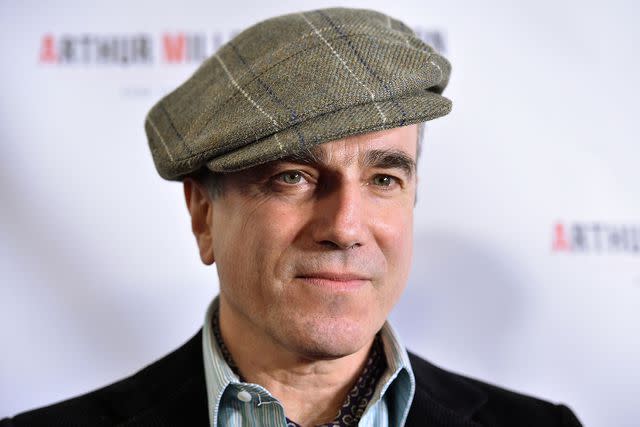
Dimitrios Kambouris/Getty Images
Daniel Day-LewisDaniel Day-Lewis has the next-most BAFTA wins for a male actor with four total. He won Best Actor for My Left Foot, Gangs of New York, There Will Be Blood, and Lincoln. He has the most wins of any performer in the modern Best Actor category (as three of Finch's wins were in Best British Actor). If he ever comes out of retirement, it wouldn't be surprising if DDL tied or passed Finch's record for overall wins by an actor.
Runners-up
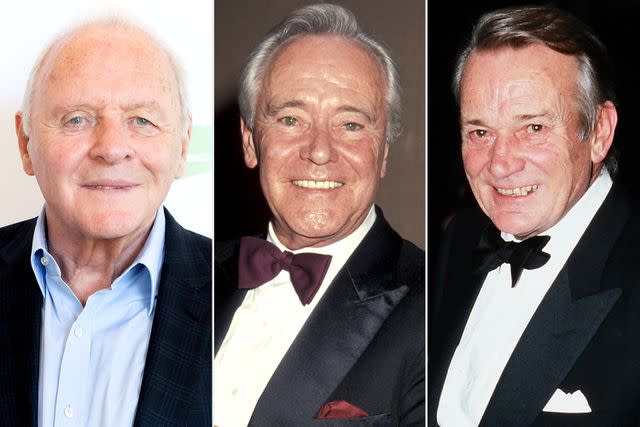
Greg Doherty/Getty Images; Jim Smeal/Ron Galella Collection via Getty Images; Shutterstock
Anthony Hopkins, Jack Lemmon, Denholm ElliottFor male actors, six performers tie for the third-most BAFTA wins with three each: Marlon Brando, Jack Lemmon, Denholm Elliott, Jack Nicholson, Geoffrey Rush, and Sir Anthony Hopkins. Brando won Best Foreign Actor for Viva Zapata!, Julius Caesar, and On the Waterfront, while Lemmon won Best Foreign Actor for Some Like It Hot and The Apartment, as well as Best Actor for The China Syndrome.
Denholm Elliott won three consecutive Best Supporting Actor BAFTAs for Trading Places, A Private Function, and Defence of the Realm. Nicholson won a joint Best Actor award for The Last Detail and Chinatown, another Best Actor award for One Flew Over the Cuckoo’s Nest, and Best Supporting Actor for Reds.
Rush won Best Actor for Shine and Best Supporting Actor for Shakespeare in Love and The King's Speech, and Hopkins won Best Actor for The Silence of the Lambs, The Remains of the Day, and The Father.
Most wins by a director
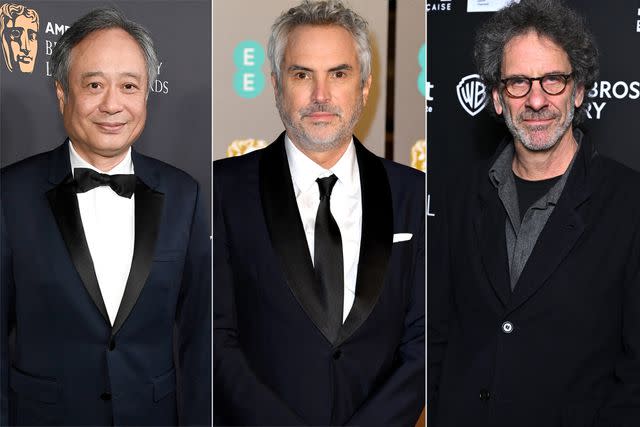
Frazer Harrison/BAFTA LA/Getty Images; Pascal Le Segretain/Getty Images; Stephane Cardinale - Corbis/Corbis via Getty Images
Ang Lee, Alfonso Cuarón, and Joel CoenNo director has a commanding lead over their peers when it comes to BAFTA wins, as nine directors have won the Best Direction award twice, and all other winners have only won once. The nine filmmakers with two Best Direction BAFTA wins are: John Schlesinger for Midnight Cowboy and Sunday Bloody Sunday; Woody Allen for Annie Hall and Hannah and Her Sisters; Louis Malle for Atlantic City and Au Revoir Les Enfants; Roman Polanski for Chinatown and The Pianist; Alan Parker for Midnight Express and The Commitments; Peter Weir for The Truman Show and Master & Commander: The Far Side of the World; Joel Coen for Fargo and No Country for Old Men; Ang Lee for Crouching Tiger, Hidden Dragon and Brokeback Mountain; and Alfonso Cuarón for Gravity and Roma.
Most wins for a movie — 'Butch Cassidy and the Sundance Kid'
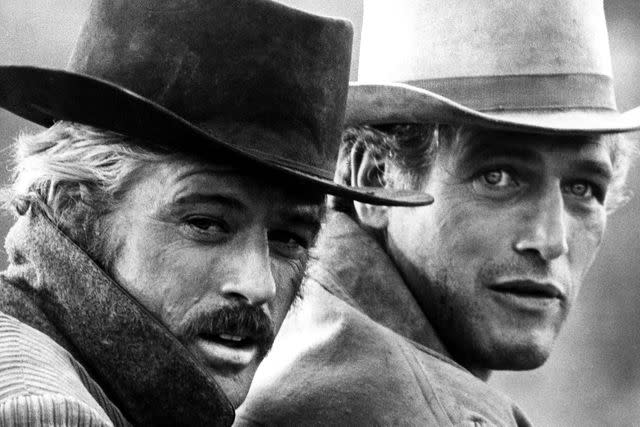
20th Century Fox Film Corp/ Courtesy Everett
Robert Redford and Paul Newman in 'Butch Cassidy and the Sundance Kid'The classic western Butch Cassidy and the Sundance Kid holds the record for the most BAFTA wins for a single movie with nine. Butch Cassidy won Best Film, Best Direction, Best Actor for Robert Redford (whose joint win was also for his work in Downhill Racer and Tell Them Willie Boy Is Here in the same year), Best Actress for Katharine Ross, Best Screenplay, Best Cinematography, Best Editing, Best Original Music, and Best Sound. The film won every category in which it was nominated — its only loss was to itself, as Redford beat out fellow nominee Paul Newman for Best Actor.
'The Killing Fields'
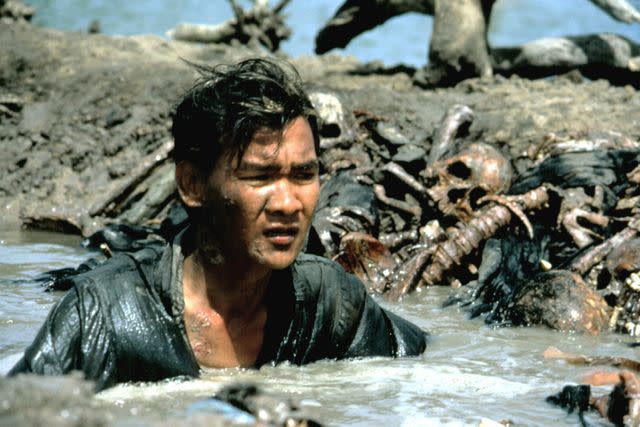
Warner Brothers/Courtesy Everett
Haing S. Ngor in 'The Killing Fields'1984's The Killing Fields, which chronicled the horrific Cambodian genocide in the 1970s, won the second-most BAFTAs for a single movie. The drama won eight awards: Best Film, Best Actor and Most Promising Newcomer to Leading Film Roles for Haing S. Ngor, Best Adapted Screenplay, Best Cinematography, Best Editing, Best Production Design/Art Direction, and Best Sound.
Runners-up
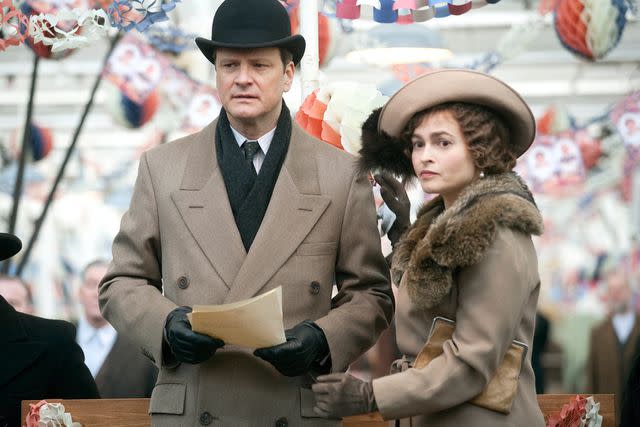
Laurie Sparham/The Weinstein Company/Courtesy Everett
Colin Firth and Helena Bonham Carter in 'The King's Speech'Eight films tie for the bronze medal for overall BAFTA wins by a single movie. The following films received seven BAFTAs each: Cabaret, Schindler’s List, Slumdog Millionaire, The King's Speech, The Artist, The Favourite, 1917, and All Quiet on the Western Front.
Most nominations for an actress — Meryl Streep
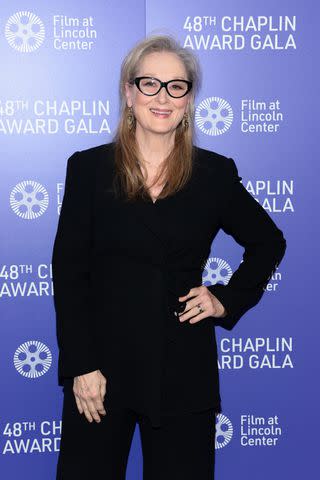
Dimitrios Kambouris/Getty Images
Meryl StreepMeryl Streep is one of two actresses with a whopping 15 BAFTA nominations. 12 of her noms came in the Best Actress category: The Deer Hunter, Kramer vs. Kramer, The French Lieutenant's Woman, Sophie's Choice, Silkwood, Out of Africa, The Hours, The Devil Wears Prada, Doubt, Julie & Julia, The Iron Lady, and Florence Foster Jenkins. Her other three noms were for Best Supporting Actress: Manhattan, Adaptation, and The Manchurian Candidate. Streep ultimately won two BAFTAs: one for The French Lieutenant's Woman, and one for The Iron Lady.
Judi Dench
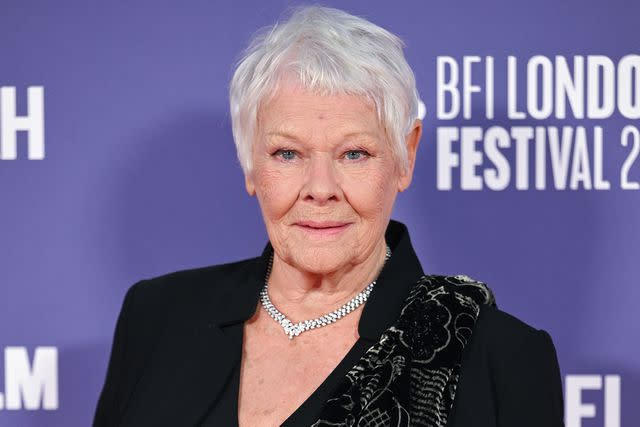
Karwai Tang/WireImage
Dame Judi DenchDame Judi Dench is the other actress with 15 career BAFTA nominations. She has five noms for leading categories: Mrs Brown, Iris, Mrs Henderson Presents, Notes on a Scandal, and Philomena. She also received a staggering nine nominations for Best Supporting Actress: Wetherby, A Room with a View, 84 Charing Cross Road, A Handful of Dust, Shakespeare in Love, Chocolat, The Shipping News, My Week With Marilyn, and Skyfall.
Dench's first nomination came in 1966, when she was nominated in a now-retired category – Most Promising Newcomer to Leading Film Roles – for her performance in Four in the Morning.
Maggie Smith
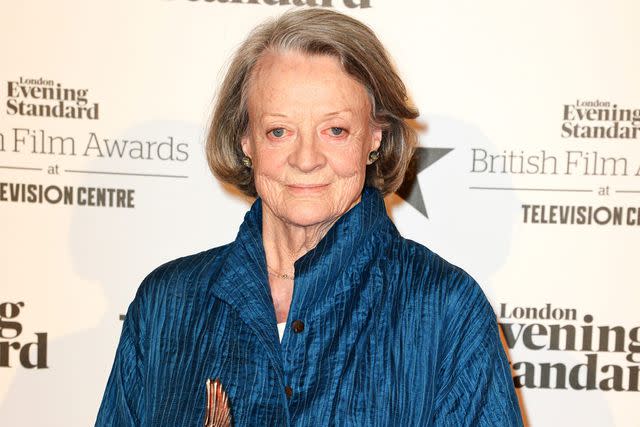
Dame Maggie Smith has the next most BAFTA nominations for an actor. The actress has a total of 12 BAFTA nominations, eight of which were for Best Actress: Young Cassidy, The Prime of Miss Jean Brodie, California Suite, Quartet, A Private Function, A Room With a View, The Lonely Passion of Judith Hearne, and The Lady in the Van. Smith also received four nominations for Best Supporting Actress: Death on the Nile, The Secret Garden, Tea with Mussolini, and Gosford Park.
Like Dench, Smith's first nomination came in the retired category of Most Promising Newcomer to Film. Smith was nominated in 1959 for her performance in Nowhere to Go.
Runners-up
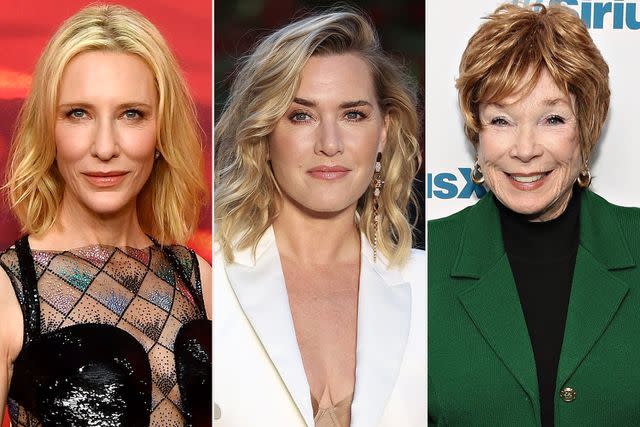
Noam Galai/Getty Images; Mike Marsland/WireImage; Cindy Ord/Getty Images
Cate Blanchett, Kate Winslet, and Shirley MacLaineAfter the top three, there are three actresses who have eight nominations each: Shirley MacLaine, Cate Blanchett, and Kate Winslet. MacLaine received Best Foreign Actress nods for The Trouble with Harry, Ask Any Girl (which she won), The Apartment (which she also won), Irma la Douce, and What a Way to Go!, followed by three Best Actress noms for Being There, Terms of Endearment, and Postcards from the Edge.
Blanchett was nominated for Best Actress for Elizabeth as well as its sequel Elizabeth: The Golden Age, Blue Jasmine, Carol, and Tár, and for Best Supporting Actress for The Talented Mr. Ripley, The Aviator, and I'm Not There.
And Winslet received nominations for Best Actress for Eternal Sunshine of the Spotless Mind and Finding Neverland (both in the same year, 2004), as well as Little Children, The Reader, and Revolutionary Road, plus noms for Best Supporting Actress for Sense and Sensibility, Iris, and Steve Jobs.
Most nominations for an actor — Albert Finney
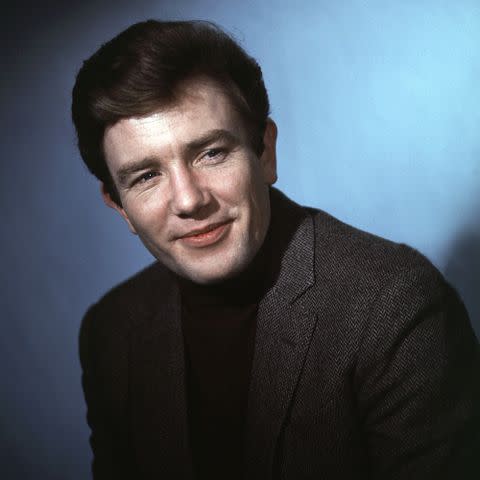
Kobal/REX/Shutterstock
Albert FinneyThe late, great Albert Finney holds the record for most BAFTA nominations by a male actor with nine career nominations. Finney received six nominations for lead performances: two for Best British Actor for Saturday Night and Sunday Morning and Tom Jones, followed by four Best Actor noms for Gumshoe, Murder on the Orient Express, Shoot the Moon, and The Dresser. Finney also received two Best Supporting Actor nominations for Erin Brockovich and Big Fish.
Like Dench and Smith, Finney also received a nom for Most Promising Newcomer to Leading Film Roles. He was nominated (and won) in 1960 for his work in Saturday Night and Sunday Morning (which means he received two nominations for one performance).
Michael Caine
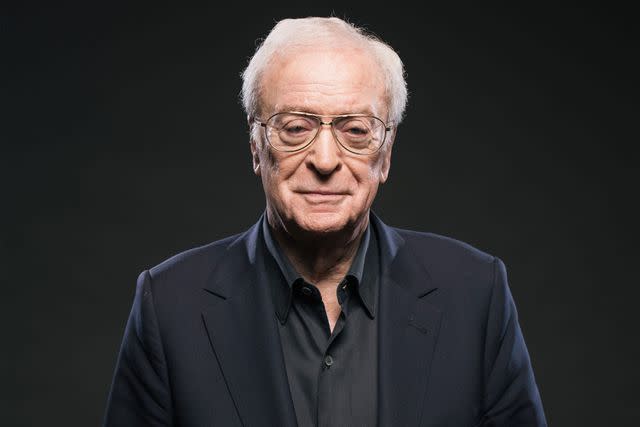
Three performers tie for the second-most BAFTA nominations in male acting categories with eight apiece. One of them is Sir Michael Caine, who first received two noms for Best British Actor forThe Ipcress File and Alfie, followed by five nominations for Best Actor: Educating Rita (which he won), The Honorary Consul (which were both in 1983), Hannah and Her Sisters, Little Voice, and The Quiet American. He also received a Best Supporting Actor nomination for The Cider House Rules.
Laurence Olivier
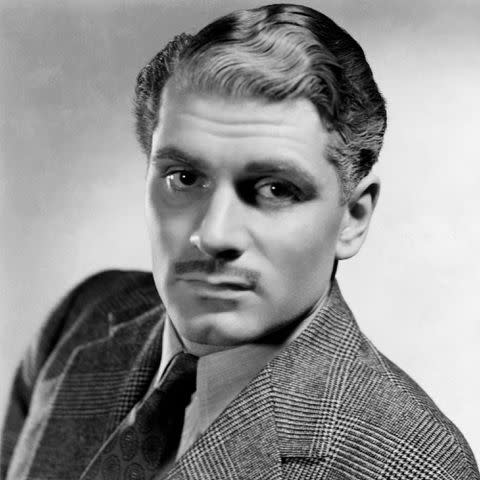
John Springer Collection/CORBIS/Corbis via Getty Images
Sir Laurence OlivierLegendary Shakespearean thespian Sir Laurence Olivier also received eight BAFTA nominations for his acting career. Six of those noms were for Best British Actor: Carrie, Richard III (which he won),The Prince and the Showgirl, The Devil's Disciple, The Entertainer, and Term of Trial. He also received a Best Actor nom for Sleuth and a Best Supporting Actor nom for Oh! What a Lovely War. Olivier also received the non-competitive BAFTA Academy Fellowship Award in 1976.
Dustin Hoffman
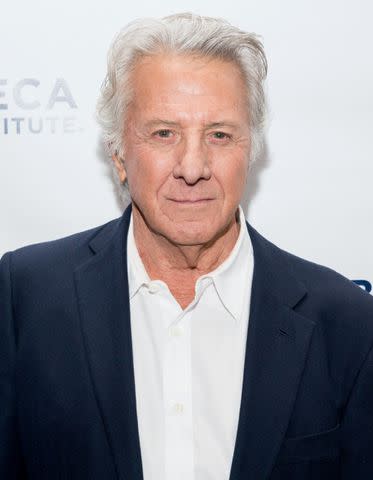
Michael Ostuni/Patrick McMullan via Getty Images
Dustin HoffmanThe last male actor with eight BAFTA nominations is Dustin Hoffman. Seven of his nominations were in Best Actor: a joint nomination (and win) for Midnight Cowboy and John and Mary in 1969, another joint nom for All the President’s Men and Marathon Man in 1975, plus noms for Little Big Man, Lenny, Kramer vs. Kramer, Tootsie (which he won), and Rain Man. Hoffman also received a nomination (and win) in the Most Promising Newcomer to Leading Film Roles category in 1968 for his role in The Graduate.
Runners-up
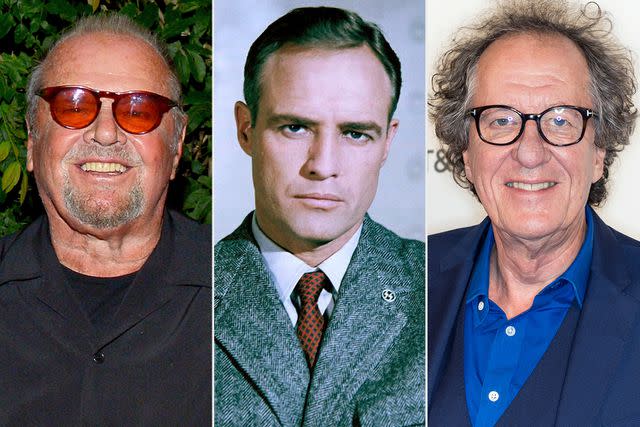
Patrick McMullan via Getty Images; Avalon/Getty Images; Gilbert Carrasquillo/FilmMagic
Jack Nicholson, Marlon Brando, and Geoffrey RushThere's a six-way tie for the male actor nomination bronze with seven noms each: Marlon Brando, Daniel Day-Lewis, Denholm Elliott, Peter Finch, Anthony Hopkins, Jack Lemmon, and Jack Nicholson.
Most nominations for Best Direction — Martin Scorsese
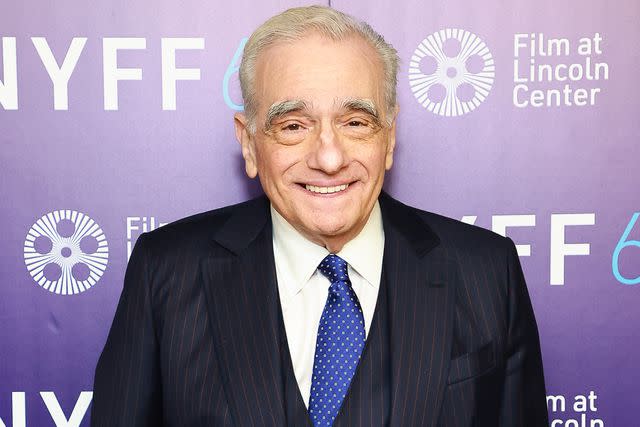
Arturo Holmes/Getty Images
Martin ScorseseFor the Best Direction category, Martin Scorsese has a commanding lead over all his competitors with a whopping 10 career nominations. He received noms for Alice Doesn't Live Here Anymore, Taxi Driver, The King of Comedy, Goodfellas (which he won), Gangs of New York, The Aviator, The Departed, Hugo, The Wolf of Wall Street, and The Irishman. He's made a total of 23 narrative features since his first nomination in 1975, which means nearly half of his filmography has received BAFTA nominations. He also received another nom (and win) for writing the screenplay for Goodfellas with Nicholas Pileggi.
Steven Spielberg
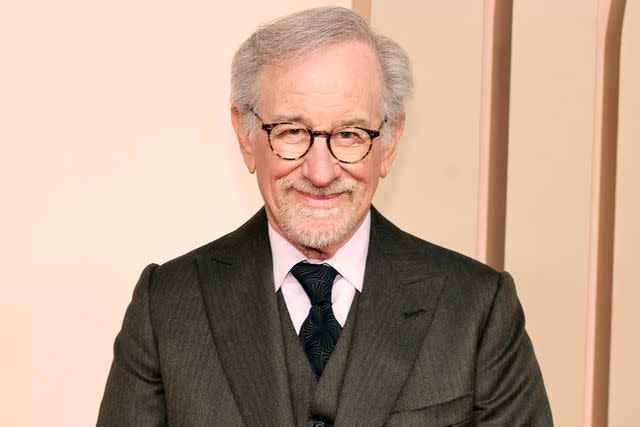
Amy Sussman/WireImage
Steven SpielbergScorsese's movie brat buddy Steven Spielberg has the second-most BAFTA nominations in the Best Direction category. His six nominations came for Jaws, Close Encounters of the Third Kind, E.T.: The Extra Terrestrial, Schindler's List (which he won), Saving Private Ryan, and Bridge of Spies. Spielberg also received a Best Original Screenplay nom for his semi-autobiographical drama The Fabelmansalongside co-writer Tony Kushner.
Runners-up
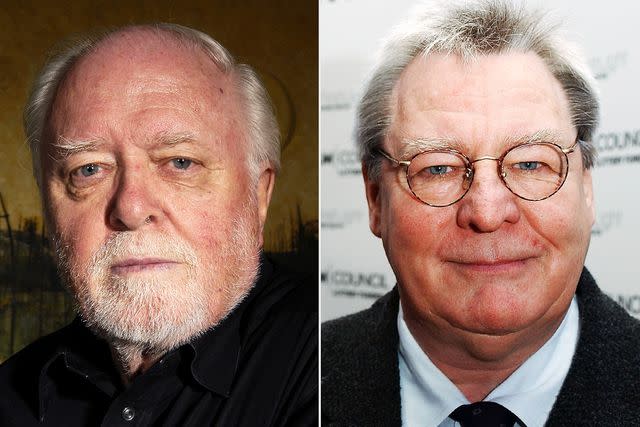
Cambridge Jones/Getty Images; Steve Finn/Getty Images
Richard Attenborough and Alan ParkerTwo filmmakers tie for the third-most nominations in the Best Direction category: Richard Attenborough and Alan Parker, with five nominations each. Attenborough's five noms came for Oh! What a Lovely War, A Bridge Too Far, Gandhi (which he won), Cry Freedom, and Shadowlands. Parker's noms were for Bugsy Malone, Midnight Express, Fame, Mississippi Burning, and The Commitments. Parker also received a Best Adapted Screenplay nom for Evita.
Most nominations for a movie — 'Gandhi'
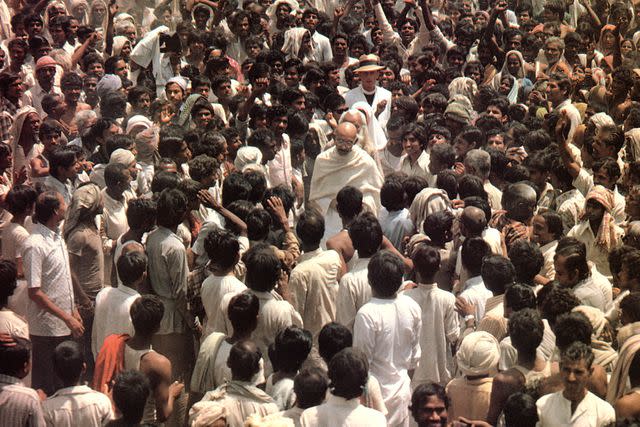
Columbia Pictures/ Courtesy Everett
'Gandhi'No movie in BAFTA history received more nominations than Richard Attenborough's Gandhi. The epic 1982 biopic scored a resounding 16 noms across 14 categories, winning for Best Film, Best Direction, Best Actor and Most Promising Newcomer to Leading Film Roles for Sir Ben Kingsley, and Best Supporting Actress for Rohini Hattangadi. It also received two Best Supporting Actor noms for Edward Fox and Roshan Seth, another Best Supporting Actress noms for Candice Bergen, and noms for Best Screenplay, Best Cinematography, Best Film Editing, Best Costume Design, Best Makeup Artist, Best Production Design/Art Direction, Best Sound, and Best Score.
'Shakespeare in Love'
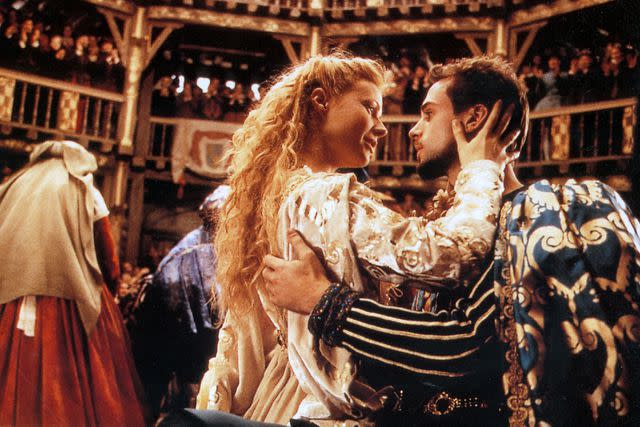
Mary Evans/MIRAMAX FILMS / UNIVERSAL PICTURES/Ronald Grant/Everett
Gwyneth Paltrow and Joseph Fiennes in 'Shakespeare in Love'The next-most nominated film in BAFTA history is 1998's Shakespeare in Love. John Madden's historical romance received 15 nominations, coming one short of tying Gandhi's record. The film won the awards for Best Film, Best Supporting Actor for Geoffrey Rush, Best Supporting Actress for Judi Dench, and Best Editing. It also received noms for Best Direction, Best Actor for Joseph Fiennes, Best Actress for Gwyneth Paltrow, Best Supporting Actor for Tom Wilkinson, Best Original Screenplay, Best Cinematography, Best Film Music, Best Makeup and Hair, Best Costume Design, Best Production Design, and Best Sound.
Runners-up
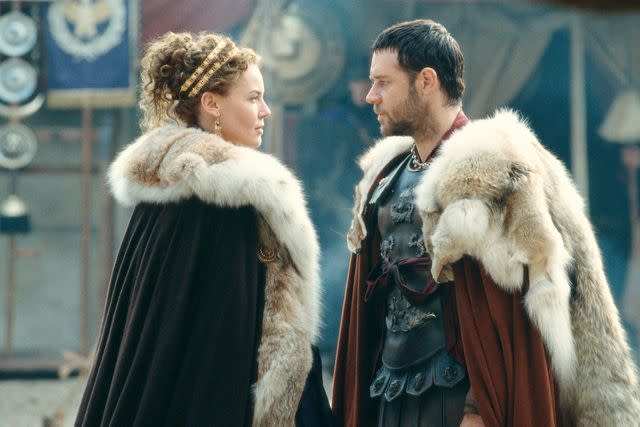
For total BAFTA nominations by a single movie, nine movies tie for third place. These nine films all received 14 BAFTA nominations, just two shy of Gandhi's record: A Room with a View; The Madness of King George; American Beauty; Crouching Tiger, Hidden Dragon; Gladiator; The Aviator; Atonement; The King's Speech; and All Quiet on the Western Front.
Check out more from EW's The Awardist, featuring exclusive interviews, analysis, and our podcast diving into all the highlights from the year's best in movies and TV.
Related content:
Shocking snubs shut out major Oscars contenders among BAFTA nominations
Awards season calendar 2024: See key show dates for Oscars, Grammys, and more
2024 Oscars predictions: Who will get nominations for Best Picture and acting?
Read the original article on Entertainment Weekly.

